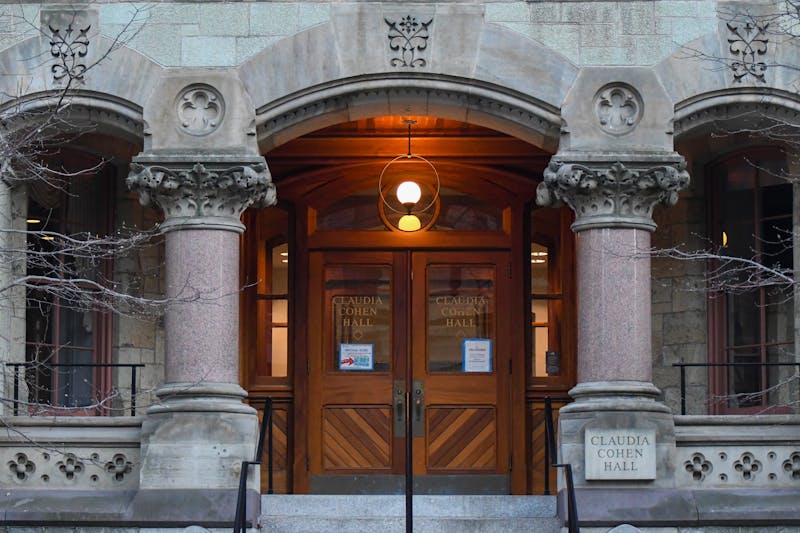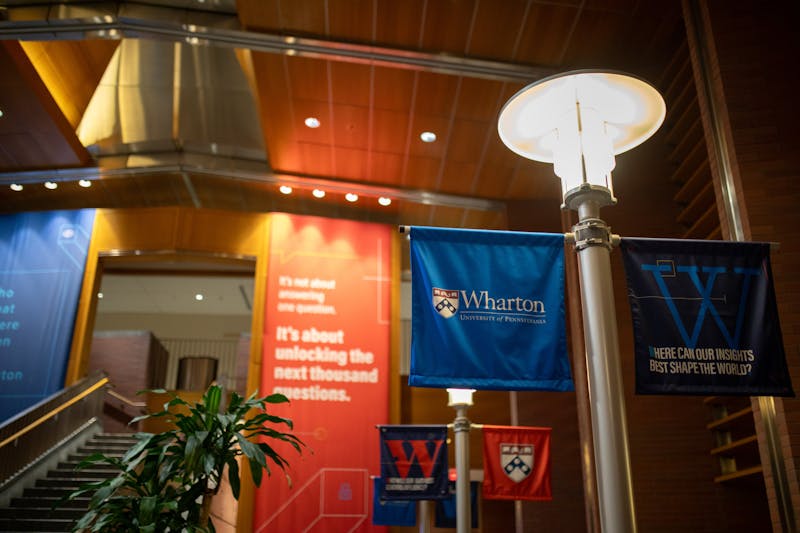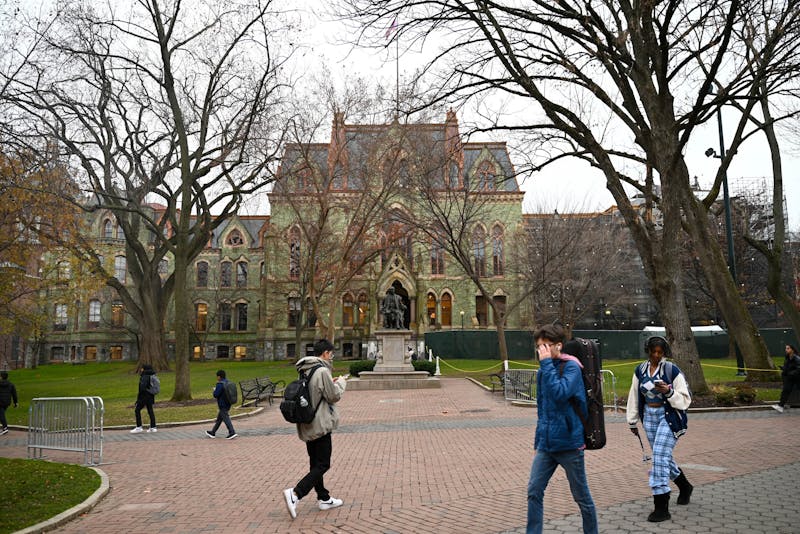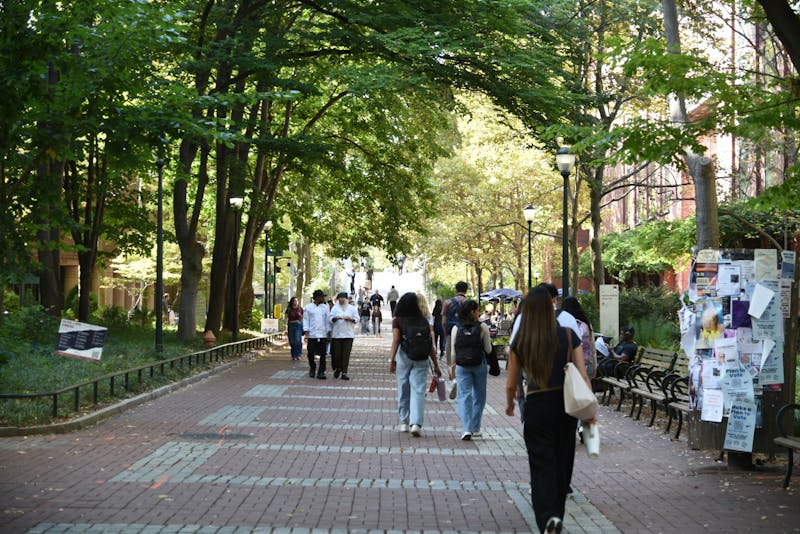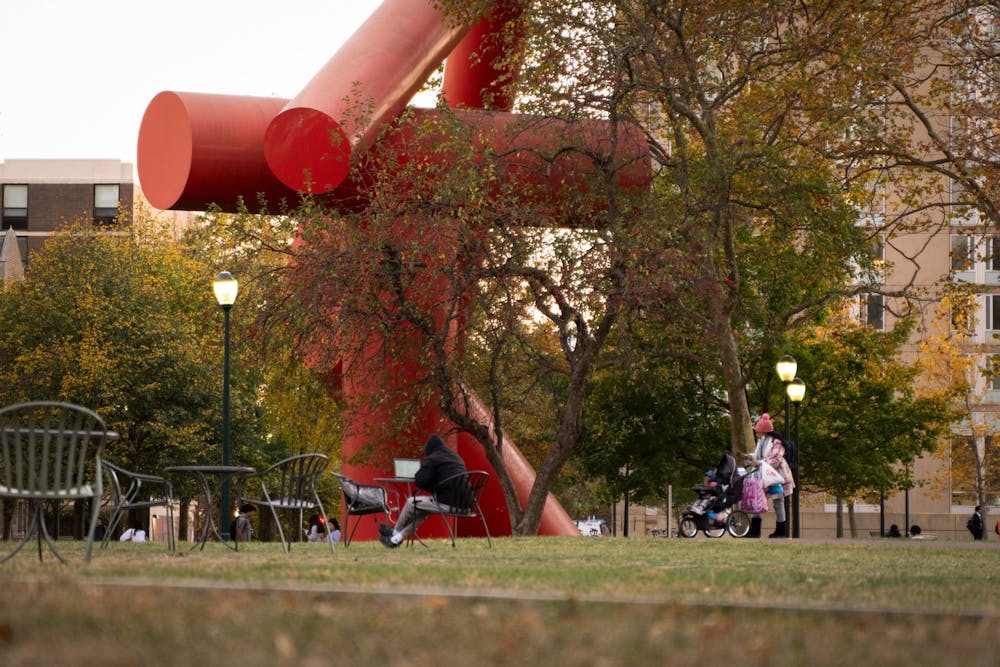
Locust Walk on Nov. 3.
Credit: Jan Mejía-ToroPenn received over 9,500 early decision applications this year, a record number that college admissions experts link to the extension of Penn’s test-optional policy.
Penn’s increase in applications marks the highest number of reported applications within the Ivy League thus far. This year, Penn was one of four Ivy League schools to continue its test-optional policy, despite all of the remaining four reinstating their standardized testing requirements for future years.
The test-optional policy was first launched during the 2020-21 admissions cycle due to the disruption caused by the COVID-19 pandemic. At the time, all eight Ivy League schools waived the testing requirement. This year, Harvard University, Brown University, and Dartmouth College requested SAT or ACT scores, while Yale opted for a “test-flexible” policy that expanded the types of accepted tests to include subject-based Advanced Placement or International Baccalaureate tests.
Managing partner of college counseling service Ivy Coach Brian Taylor associates the continuation of Penn’s test-optional policy with the University’s increase in applications.
“Penn still doesn’t mandate testing, so they’re seeing the advantage of maintaining this test-optional policy,” Taylor said.
President and chief educational consultant of One-Step College Counseling Laurie Kopp Weingarten similarly related a decreased number of applications with the revival of testing requirements.
“Because Brown required test scores, their applications decreased,” Weingarten said. “Yale required test scores, their applications decreased.”
Yale University trailed Penn with 6,729 applications to the school’s restrictive early action application cycle. Columbia University came next with 5,872 applications, followed by Brown with 5,048. Dartmouth came in last of the Ivy League universities with 3,550 applications.
For many universities, the early decision cycle was also influenced by campus activism in response the Israel-Hamas War.
“There was quite a bit of activism on campuses last year, and some schools handled the situation better than others,” Weingarten said. She suggested that the steady number of applications for schools like Dartmouth — despite having reinstated its standardized testing requirements — could be attributed to its response to on-campus activism being “arguably the best of the Ivies.”
Penn’s response to on-campus activism caused Taylor to project that the University would experience a drop in applications.
“[We] predicted that applications would be down at schools like Penn, Yale, Brown, Harvard, Cornell, and first and foremost, Columbia,” Taylor said. “We thought they would scare away Jewish students because when they allowed these encampments to happen in Columbia, it became very scary for Jewish students.”
Columbia, which implemented a permanent test-optional policy for applicants to the College and the School of Engineering and Applied Science, reported a 2.28% decrease in applications from the year prior.
Most Ivy League schools have refrained from sharing detailed admissions statistics for this year. In an announcement, Penn Vice Provost and Dean of Admissions Whitney Soule simply mentioned that the University received “over 9,500 applications” and a “record number of Questbridge Match scholars.”
The lack of detail regarding Penn’s early decision results reflects a general decrease in information about admissions.
In 2022, Penn Admissions declined to share the acceptance rate for the Class of 2026. Penn Admissions later stopped sharing data on legacy admits in 2023.
Like Penn, Columbia and Dartmouth have only shared selective statistics, such as the number of applications, while Harvard, Princeton University and Cornell have refrained from sharing any information.
Dartmouth justified the school’s limited public admission statistics as a measure to “de-emphasize the stress of Ivy League selectivity.” Taylor criticized this stance, highlighting instead the lack of transparency from many Ivy League schools.
“They tend to cherry pick data,” Taylor said. “They'll share lots of data in a year when applications surge, and oftentimes in years when applications dip, they’re going to not release data. The real reason is they’re protecting their bottom line.”
Weingarten similarly urged open communication from schools regarding admissions, specifically during the early decision cycle.
“I think colleges should be much more transparent,” Weingarten said. “The admission process is so unbelievably stressful, and I think sometimes admission officers forget that withholding the early decision acceptance rate only adds to the uncertainty for the students and for their parents. We already know how selective these schools are. Hiding the numbers doesn’t change that.”
The Daily Pennsylvanian is an independent, student-run newspaper. Please consider making a donation to support the coverage that shapes the University. Your generosity ensures a future of strong journalism at Penn.
Donate







